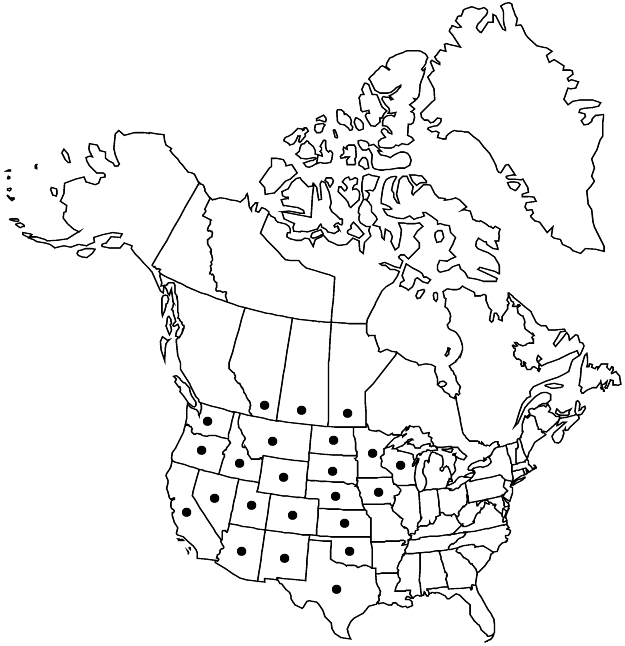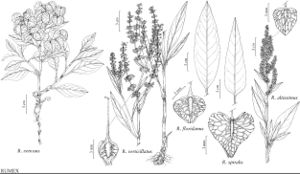Difference between revisions of "Rumex venosus"
Fl. Amer. Sept. 2: 733. 1813.
FNA>Volume Importer |
FNA>Volume Importer |
||
| Line 32: | Line 32: | ||
-->{{#Taxon: | -->{{#Taxon: | ||
name=Rumex venosus | name=Rumex venosus | ||
| − | |||
|authority=Pursh | |authority=Pursh | ||
|rank=species | |rank=species | ||
| Line 46: | Line 45: | ||
|publication year=1813 | |publication year=1813 | ||
|special status= | |special status= | ||
| − | |source xml=https://jpend@bitbucket.org/aafc-mbb/fna-data-curation.git/src/ | + | |source xml=https://jpend@bitbucket.org/aafc-mbb/fna-data-curation.git/src/f50eec43f223ca0e34566be0b046453a0960e173/coarse_grained_fna_xml/V5/V5_1034.xml |
|subfamily=Polygonaceae subfam. Polygonoideae | |subfamily=Polygonaceae subfam. Polygonoideae | ||
|genus=Rumex | |genus=Rumex | ||
Revision as of 21:49, 16 December 2019
Plants perennial, glabrous or nearly so, with creeping rhizomes. Stems ascending or, rarely, erect, usually producing axillary shoots near base, (10–)15–30(–40) cm. Leaf blades ovate-elliptic, obovate-elliptic, or ovate-lanceolate, (2–)4–12(–15) × 1–5(–6) cm, subcoriaceous, base narrowly to broadly cuneate, margins entire, flat or slightly undulate, apex acute or acuminate. Inflorescences terminal and axillary, usually occupying distal 2/3 of stem/shoot, usually dense, or interrupted in proximal part, broadly paniculate. Pedicels articulated near middle, filiform or slightly thickened, (8–)10–16 mm, articulation distinct, slightly swollen. Flowers 5–15 in whorls; inner tepals distinctly double-reticulately veined, orbiculate or reniform-orbiculate, 13–18(–20) × (20–)23–30 mm, base deeply emarginate or cordate, margins entire, apex rounded, obtuse, rarely subacute, with short, broadly triangular tip; tubercles absent, occasionally very small. Achenes brown or dark brown, 5–7 × 4–6 mm. 2n = 40.
Phenology: Flowering spring–early summer.
Habitat: Sand dunes, sandy and gravelly riverbanks and slopes, deserts, grasslands 200-1500 m
Distribution

Alta., Man., Sask., Ariz., Calif., Colo., Idaho, Iowa, Kans., Minn., Mont., Nebr., Nev., N.Mex., N.Dak., Okla., Oreg., S.Dak., Tex., Utah, Wash., Wis., Wyo.
Discussion
Rumex venosus is a distinctive species rarely confused with any other members of the genus. However, I have seen herbarium specimens of it misidentified as R. hymenosepalus, and vice versa.
Selected References
None.
